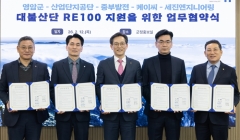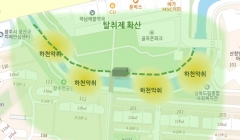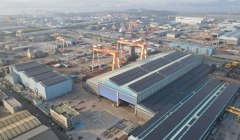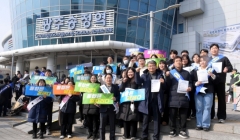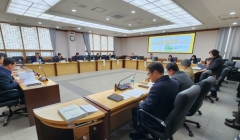편집 : haenamnews@naver.com
체코가 웨스팅하우스(Westinghouse)와 진행 중인 원전 우선협상은 단순한 사업 문제가 아니다.
이는 곧 국가 기술 주권과 미래 전략의 생존 여부를 가르는 시험대다.
하지만 현 상황을 보면, 체코뿐 아니라 한국 원전 산업이 직면한 위기는 결코 가벼운 문제가 아니다.
웨스팅하우스는 재정적 난맥 속에서 명맥만 유지하고 있다.
그러나 체코는 핵심 제어계측(MMIS)과 전산 시스템 기술 때문에 사실상 W의 손에 묶여 있다. 체코가 주장하는 ‘W와 합의 없이는 협상 불가’라는 논리는 현실을 감춘 체코 스스로의 선택지 제한이다.
더 심각한 문제는 계약 구조다.
미국 원천기술 사용권을 50년간 보장하는 라이선스 계약은, 한국수자원공사가 매년 1조 원 이상을 W에 바치며 기술 종속에 묶이는 미래를 확정짓는다.
한국 원전 기술과 개발 역량은 이 계약에서 완전히 배제된다.
이는 단순한 사업 실패가 아닌, 한국 기술의 무력화를 의미한다.
바라카 원전 계약과 비교하면 체코 사태의 위험은 극명해진다. 한국형 원전(APR1400) 중심의 바라카 계약은 기술 주도권과 운영 참여권을 확보한 균형 있는 구조였다.
반면 체코 계약은 한국 기술과 경험을 배제하고, 장기적 비용만 강요하는 완전한 마이너스 계약이다.
단기적 수익은커녕, 한국 기업의 미래 성장 동력까지 무너질 수 있는 구조다.
그렇다면 한국 원전 산업은 이 절체절명의 위기에서 어떻게 살아남을 수 있을까.
답은 분명하다.
웨스팅하우스의 불안정성을 활용해 체코 정부와 직접 협상에 나서는 전략적 개입이다.
장기 비용 부담과 기술 종속 문제를 지적하며, 한국형 원전 기술·설계·운영 패키지를 제시해야 한다.
단순한 기자재 수출이 아니라, 주도권 있는 계약 구조 확보가 핵심이다.
이를 통해 체코뿐 아니라 유럽 원전 시장에서도 한국 기술의 위상을 확고히 할 수 있다.
원전은 단순한 건설 사업이 아니다.
이는 국가와 기업의 기술력, 전략적 판단, 미래 주도권이 맞물린 장기적 선택이다.
체코 우선협상권 문제는 한국에게 명백한 경고를 준다. 기술과 주도권을 포기한 채 비용만 지불하는 계약은 곧 재앙이다.
그러나 전략적 판단과 공격적 개입으로 접근한다면, 위기는 곧 기회가 될 수 있다.
한국 원전 기술의 생존은 지금의 선택에 달려 있다.
❙ Editorial ❙
Editor: haenamnews@naver.com
Czech Nuclear Plant Priority Negotiations: The Survival of Korean Technology Hangs in the Balance
The Czech Republic’s priority negotiations with Westinghouse regarding nuclear power are far from a mere business matter.
They represent a critical test of national technological sovereignty and the survival of long-term strategic interests.
The current situation, however, reveals that the crisis is not only for the Czech side but also for Korea’s nuclear industry, and it is far from trivial.
Westinghouse is barely maintaining its footing amid financial turmoil.
Yet the Czech Republic remains effectively bound to Westinghouse due to its essential control and instrumentation (MMIS) and computerized system technology. The Czech claim that “negotiations cannot proceed without an agreement with Westinghouse” obscures the reality: it is, in fact, a self-imposed limitation on their options.
An even graver concern lies in the contract structure itself.
The 50-year license agreement for the use of U.S. intellectual property ensures that Korea Hydro & Nuclear Power would pay over one trillion won annually to Westinghouse, locking Korea into technological dependence for decades.
Korean nuclear technology and development capabilities are completely excluded from this contract.
This is not merely a failed business deal—it represents the neutralization of Korean technological prowess.
The risk becomes stark when compared with the Barakah nuclear power contract. Korea’s APR1400-centered Barakah deal ensured technological leadership and operational participation, reflecting a balanced structure.
In contrast, the Czech contract excludes Korean expertise and enforces long-term financial burdens, a completely negative-sum deal. It threatens not only short-term profits but also the future growth potential of Korean firms.
So how can Korea’s nuclear industry survive this existential crisis?
The answer is clear. Korea must exploit Westinghouse’s instability and strategically intervene by negotiating directly with the Czech government.
By highlighting the long-term financial burdens and technological dependence, Korea can propose a comprehensive package including its own reactor technology, design, and operational capabilities.
The goal is not mere equipment export but the acquisition of a contract structure that ensures leadership and control. This approach would solidify the stature of Korean technology not only in the Czech Republic but throughout the European nuclear market.
Nuclear power is not simply a construction project. It is a long-term choice where national and corporate technological capabilities, strategic judgment, and future leadership are intertwined.
The Czech priority negotiations send Korea a stark warning. A contract that sacrifices technological leadership while imposing ongoing costs is a recipe for disaster.
Yet, with strategic insight and assertive intervention, this crisis could become an opportunity.
The survival of Korean nuclear technology depends on the choices made now.
뉴스채널 newscheaner@kakao.com
 2026.02.19 (목) 07:30
2026.02.19 (목) 07:30














